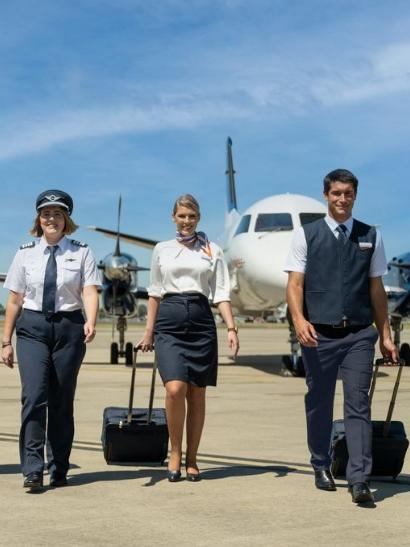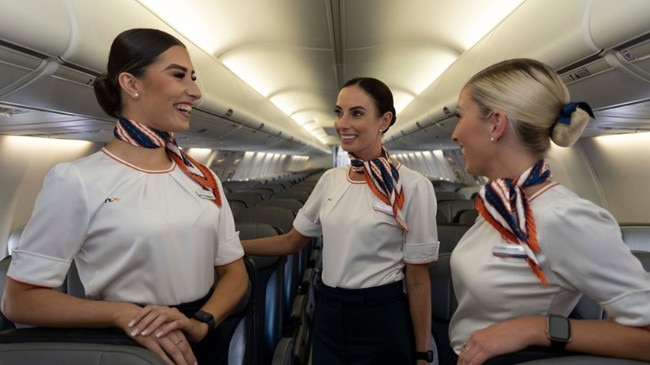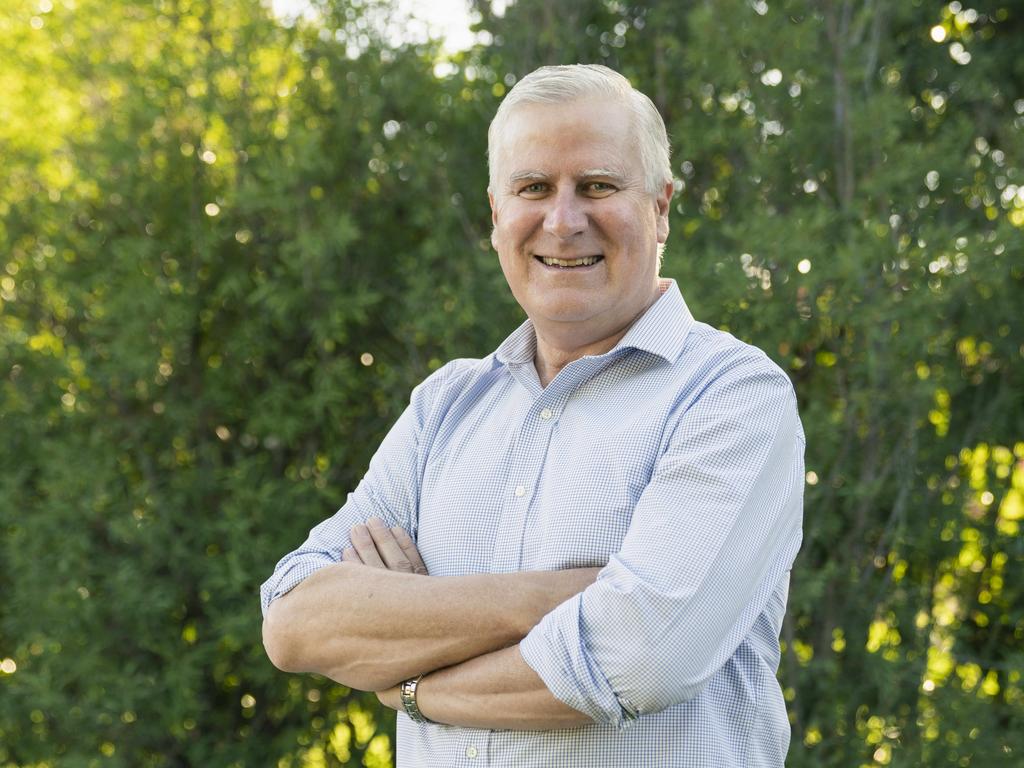Rex didn’t market its airfares, service or punctuality enough prior to collapse
Rex’s 737 services were good value, punctual, never crowded and the in-flight service was warm and friendly. But up until 12 days before it collapsed, hardly anyone knew about them.
Business
Don't miss out on the headlines from Business. Followed categories will be added to My News.
It was aviation’s best kept secret, and now that secret will go to the grave.
Rex’s 737 services were good value, punctual, never crowded and the in-flight service was warm and friendly.
The problem was hardly anyone knew about them because Rex did not bother to do any marketing, until 12 days before it collapsed.
They relied on their loyal regional following and word of mouth to fill 176-seat Boeing 737s on big city routes and blamed everyone else when that did not occur.
Access to Sydney Airport slots was to blame; rival airlines undercutting their fares were to blame; pilots leaving Rex to work for other airlines were to blame and the embedded duopoly of Qantas and Virgin Australia was to blame.
When the cash flow problems went from bad to chronic, consultants were called in — and the board of directors turned on each other.
While those issues all played a part in Rex’s descent into administration, there was a view that the carrier formerly known as Regional Express was simply ill-prepared to move into major city routes.
Award-winning creative director Dee Madigan said where Rex really went wrong was forgetting what they were good at — regional services — and failing to tell people about that.


“I think their mistakes were partly business, but if you make people feel good about your brand and that’s what marketing does, then people come out and fight for it, and where marketing matters is it also gives you a buffer in a crisis,” said Ms Madigan.
“Qantas found that. Qantas should’ve been in a lot more trouble than they were a lot earlier but people liked the brand because they’d had 50 years of good marketing and people underestimate how important that is because it isn’t what you say, it’s what people feel.”
She said by all accounts everyone who flew with Rex enjoyed the experience, but word of mouth was not enough.
“You have to be out there, and really they should’ve been out there marketing themselves as the little guy who looked after the regions,” Ms Madigan said.
“I would imagine there would’ve been some really interesting stories of people flying Rex from interesting places that could’ve been woven into a very compelling campaign.”
In a case of “too little, too late” Rex did in fact launch an ad campaign titled “an airfare to remember” on July 19.
A far cry from Qantas’ lavish advertisements featuring sweeping landscapes, choirs and celebrities, the 10 second ad was an exercise in simplicity. There was no paid actors or even a voice over, just a series of messages over an aircraft window.
Intended to be in the market for a month, the campaign barely saw the light of day before Rex entered a trading halt on July 29, grounded jet operations and appointed administrators EY.
Ms Madigan said it did not look like they had spent a lot on the campaign, but it was unfortunate they didn’t do it sooner.
“They did have a nice story to tell, but they just never bothered telling it,” she said.
“Brands not only give you a buffer in a crisis, they also mean if people have a choice between two or three different airlines and they’re close on price, they will pay a little bit more for a brand that they like, and I think people would’ve been happy to fly Rex to give Qantas the finger a little bit.”

Whether Rex will ever get to tell its story, is now in the hands of administrator EY which is understood to have found the black hole in its balance sheet is much deeper than anticipated.
University of New South Wales aviation lecturer Ian Douglas said it was highly unlikely they would be allowed to disappear altogether due to the criticality of regional flights.
“My expectation is that Rex will survive,” said Dr Douglas.
“The government 30 years ago decided that they were not going to own airlines in Australia so I don’t see an equity stake as a strong contender, but the services are critical so they’ll be supported one way or another.”
Like Ms Madigan, Dr Douglas believed Rex would “go back to looking like Rex looked before” and government would underwrite the operating costs of regional services.
“It kind of underlines for me that it seems pretty well impossible to get this mythical third carrier into the Australian market,” he said.
“If you look at western Europe with 350 million people and North America with over 300 million, there are only three big carrier groups in each so I think we might be asking the impossible to have three big carriers for a population of 26 million.”
Alas for travellers, the return of the “cosy duopoly” meant fewer cheap airfares with RBC capital markets analyst Owen Birrell observing the failure of Rex and Bonza “reduced competitive pressures”.
“We would suggest that this is to the benefit of Virgin more so than Qantas,” said Mr Birrell.
“For Qantas, in the wake of the Rex demise, our primary concern is whether the government takes regulatory steps to break down its dominance and improve competition in the sector. At this stage we would say the likelihood is relatively low but the conversation is likely to be had.”
More Coverage
Originally published as Rex didn’t market its airfares, service or punctuality enough prior to collapse





